Introduction to Lead Generation for Digital Agencies
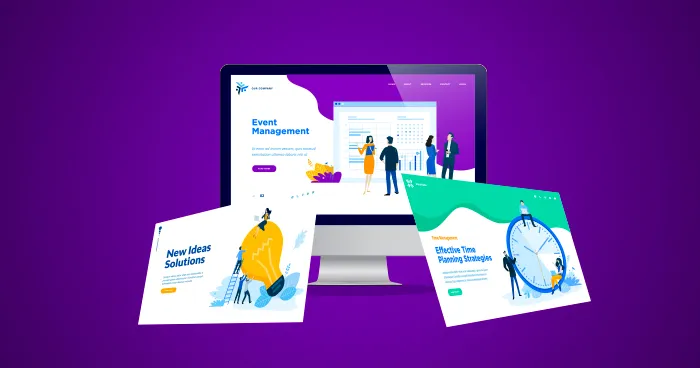
A digital agency specializes in delivering creative and strategic solutions for online presence and marketing. Services range from website design to social media and digital marketing.
These agencies are pivotal in creating strategies that not only enhance online presence but also drive meaningful engagement and conversion.
Lead generation for digital agencies refers to the process of attracting and converting prospective clients into leads, specifically for businesses in the digital marketing sector. This process is crucial for the growth and sustainability of digital agencies.
The Importance of Generating Leads for Digital Agencies
Generating leads for digital agencies is not just about getting noticed; it's about getting noticed by the right businesses.
Effective lead generation helps digital agencies to stand out, drawing in potential customers who are a good fit for their specific services.
For instance, if a digital marketing agency excels in Facebook lead ads, the lead generation efforts should focus on businesses seeking growth through social media.
It’s about aligning the agency’s strengths with the needs of the market. This process is critical for steady growth and maintaining a competitive edge.
Lead generation is not a one-off task but an ongoing process. It involves understanding the target audience and their pain points. For example, if an agency specializes in SEO, its lead generation process should target businesses looking to boost their online presence.
By combining various tools and techniques like content marketing, social media posts, and lead generation tools, digital agencies can create a sustainable lead pipeline. These efforts must be strategic and focused, ensuring that each step taken contributes to attracting and converting potential clients.
Lead Generation Strategies to For Digital Agencies
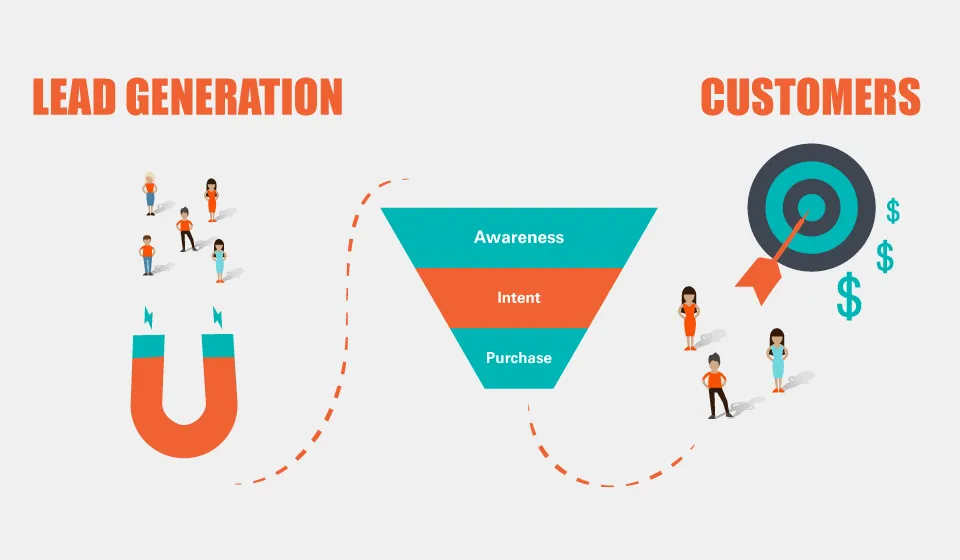
Crafting Effective Lead Generation Strategies for Digital Agency
Digital agencies operate in a highly competitive market, making standout lead-generation strategies vital. This expanded guide delves deeper into effective strategies, ensuring your digital agency not only attracts but also retains the right clientele.
Identify Your Target Audience

Effective lead generation starts with a deep understanding of who your digital agency aims to serve. This involves:
Market Research: Conducting thorough market research helps pinpoint the exact demographic that would benefit most from your services, whether it's SEO, social media marketing, or paid advertising.
Customer Personas: Develop detailed customer personas. These are semi-fictional representations of your ideal clients based on real data and some educated guesses about customer demographics, behavior patterns, and goals.
Feedback and Surveys: Engaging current clients with surveys and feedback forms can provide insights into who your target audience should be.
Content Marketing: Key to Engagement
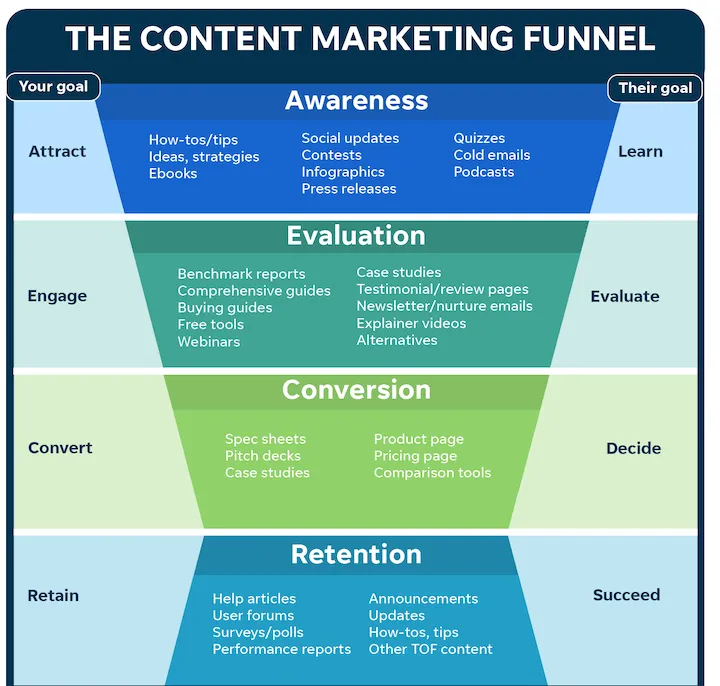
Content marketing is not just about publishing; it’s about engaging and educating your potential customers:
Blog Writing: Focus on writing blog posts that address the specific challenges and questions of your target audience. Each post should be SEO-friendly to enhance digital marketing leads.
Educational Videos and Webinars: Create and share videos and webinars that provide valuable insights into digital marketing topics. These can position your agency as an industry expert.
E-books and Whitepapers: Offer in-depth information on complex subjects like lead generation strategies and lead nurturing through downloadable content.
Leverage Digital Marketing Channels

A multi-channel approach can amplify your lead generation efforts:
Social Media Engagement: Use platforms like LinkedIn for B2B engagement and Facebook for B2C to share content, interact with followers, and run targeted ad campaigns.
Email Marketing Campaigns: Implement personalized email campaigns using email marketing software. This includes nurturing leads with drip email campaigns.
SEO and Blogging: Consistently update your website with SEO-optimized content to improve your visibility on search engines, attracting potential clients actively searching for digital marketing solutions.
Innovate Strategies for Enhanced Reach
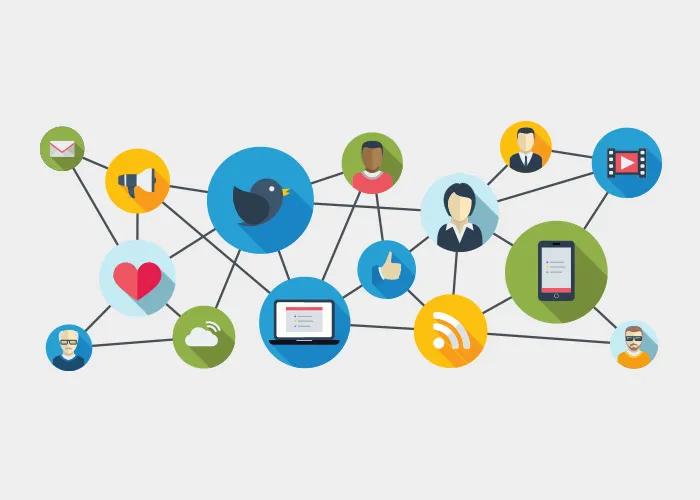
To stand out, your agency needs to think outside the box:
- Collaborative Marketing: Partner with non-competing agencies or businesses to co-create content or host events, tapping into each other's audiences.
- Influencer Collaborations: Engage with influencers in the digital marketing space to reach a wider audience.
- Interactive Content: Use quizzes, polls, and interactive infographics on your website and social media to engage potential customers.
Craft a Detailed Lead Generation Plan

A well-structured plan is the backbone of successful lead generation:
- Clear Goals and Objectives: Set specific, measurable goals for your lead generation efforts, like a certain number of leads per month or a percentage increase in website traffic.
- Strategy Documentation: Document your strategies, including the channels you'll use, the type of content you'll create, and the tools needed.
- Regular Reviews and Adjustments: Continuously review the performance of your strategies against your KPIs and adjust as needed.
Lead Nurturing and Conversion
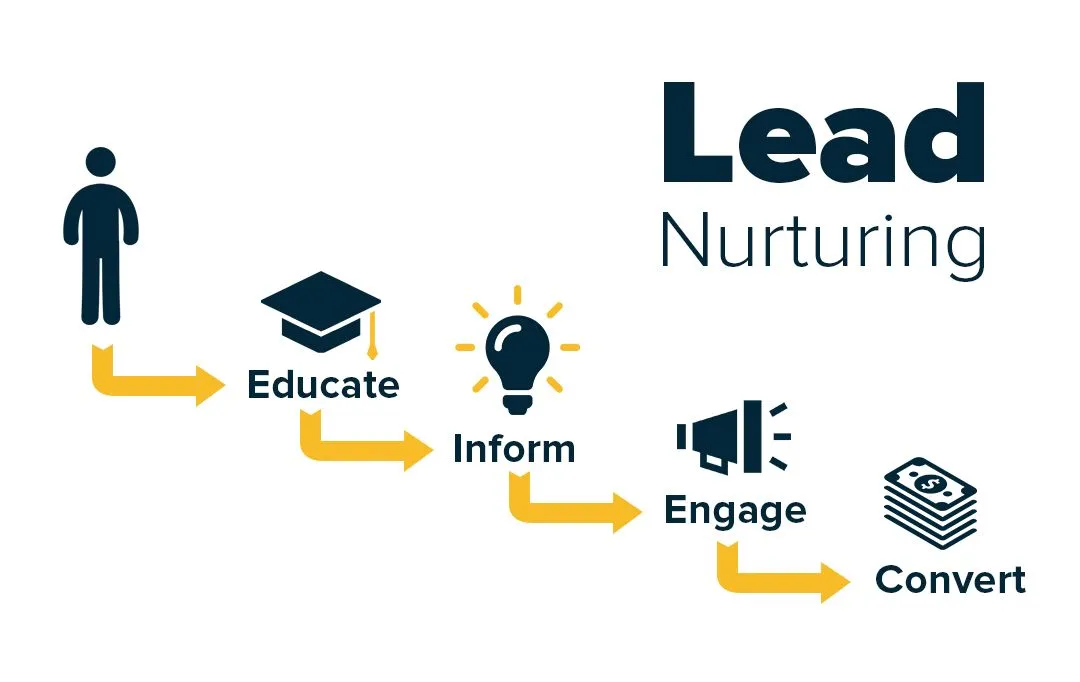
Turning leads into clients requires consistent and personalized engagement:
- Segmentation and Personalization: Segment your email list based on user behavior and interests, sending personalized content that speaks directly to their needs.
- Follow-Up Strategies: Develop a systematic follow-up strategy for leads that have shown interest but have not yet converted.
- Value Proposition: Clearly communicate how your services can solve the problems or fulfill the needs of your potential clients.
Lead Generation Tactics for Digital Agencies

1. SEO Optimization to Drive Qualified Leads
Targeted Keywords: Use specific keywords like digital marketing leads to improve search engine rankings and attract the right audience.
Content Relevance: Develop content that addresses the queries of your target audience, enhancing the chances of conversion.
2. Lead Magnets Implementation
Free Tools/Resources: Offer resources related to digital marketing, such as SEO audits or strategy templates, to attract leads.
Downloadable Content: Provide educational material like e-books or whitepapers on lead generation topics.
3. Utilize Paid Advertising for Immediate Reach
Google Display Ads: Use these ads to quickly reach a broader audience.
Facebook Lead Ads: Implement these ads to gather lead information directly on the platform.
4. Landing Page Optimization
Clear CTAs: Ensure landing pages have a compelling call-to-action.
Focused Design: Design landing pages that are clear and concise, emphasizing the value proposition.
5. Data-Driven Strategy Adjustment
Performance Analysis: Regularly review and analyze campaign data to understand what works.
Tactical Adjustments: Modify tactics based on performance data to improve lead generation outcomes.
Integrated Marketing Approaches to Generate High-Quality Leads
Engage Potential Customers with Targeted Content Marketing
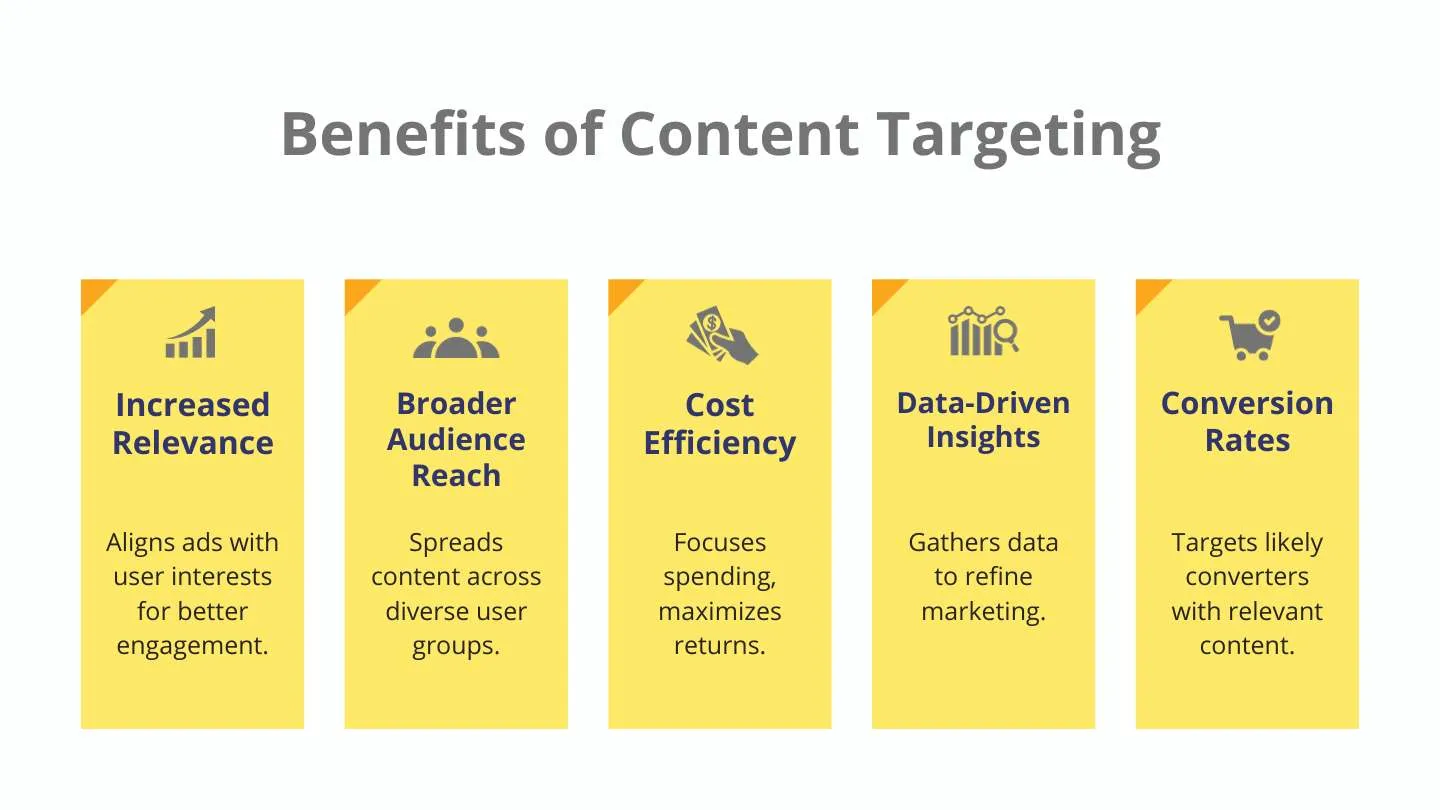
Content marketing is a direct approach for digital agencies to attract and retain a clearly-defined audience. By creating and distributing relevant and valuable content, digital agencies can:
Directly Address Customer Needs: Tailor blog posts to answer specific questions or solve problems that potential customers face.
Boost Visibility with SEO: Incorporate SEO techniques in content to improve online visibility, focusing on keywords such as digital marketing agencies and lead generation strategy.
Leverage Social Media Marketing and Email Marketing to Increase Conversion Rates

Effective use of social media and email marketing can lead to qualified leads, increased engagement, and higher conversion rates.
Targeted Social Media Campaigns: Utilize platforms like LinkedIn and Facebook for engaging with the target audience. Posts should be strategic, using data to inform content and timing.
Effective Email Strategies: Utilize email marketing software to send personalized emails. Drip campaigns can nurture leads, and retargeting emails can bring back those who showed initial interest.
Utilizing Video Marketing to Attract Digital Marketing Leads
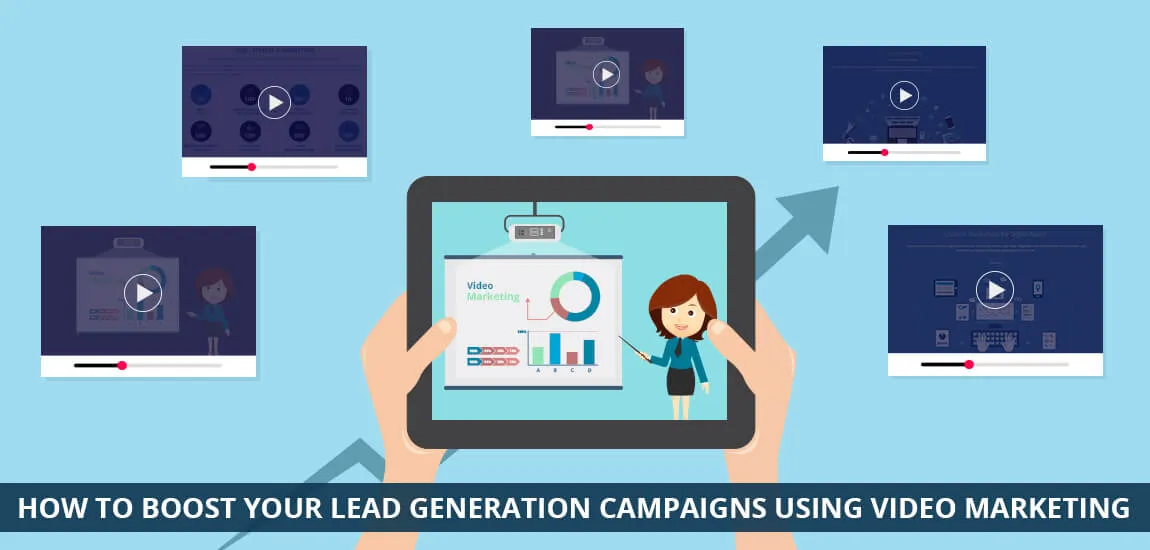
Digital agencies are using video marketing as an essential tool to effectively communicate their message, which helps in generating more leads.
Create Engaging Content: Develop videos that provide clear and engaging explanations of services or client testimonials.
Broaden Reach: Distribute video content across various platforms like YouTube and social media to reach a wider audience.
Right Lead Generation Tools and Software for Digital Agencies

For digital marketing agencies, choosing effective lead-generation tools and software is critical. Imagine you’re tasked with boosting high-quality leads in a digital agency. The first step is selecting lead generation software that complements your strategy.
To help you achieve your goals, here is a list of the top tools and software available.
Email Marketing Platforms (e.g., MailChimp, Constant Contact)
Ideal for drip campaigns and nurturing leads. They allow agencies to send targeted emails to potential customers, gradually guiding them through the sales funnel. This tool is essential for maintaining a connection with your audience, offering both information and promotions directly to their inbox.
CRM Systems (e.g., Salesforce, HubSpot)
These systems are crucial for managing interactions with current and potential clients. They help in organizing contact details, tracking interactions, and scheduling follow-ups. This is where your sales team can monitor the progress of each lead and strategize accordingly.
SEO Tools (e.g., SEMrush, Moz)
To increase website traffic, these tools offer insights into keywords, backlink opportunities, and on-page SEO optimization. They are indispensable for digital marketing agencies aiming to improve their search engine rankings and attract more visitors.
Social Media Management Tools (e.g., Hootsuite, Buffer)
For agencies focusing on social media marketing, these tools provide a platform to schedule posts, analyze social media traffic, and engage with the audience across different networks. They are key in managing a consistent and engaging online presence.
Lead Generation Software (e.g., Leadpages, Unbounce)
These tools are designed to create landing pages that effectively convert website visitors into leads. They offer customizable templates and A/B testing to optimize conversion rates.
Analytics and Data Analysis Tools (e.g., Google Analytics, Tableau)
Understanding your audience and campaign performance is essential. These tools provide data on website traffic, user behavior, and campaign effectiveness, guiding strategic decisions based on concrete metrics.
Paid Advertising Tools (e.g., Google Ads, Facebook Ad Manager)
For digital marketing agencies, leveraging paid advertising can be a quick way to generate leads. These tools help in creating, managing, and optimizing ad campaigns on search engines and social media platforms.
Content Management Systems (CMS) (e.g., WordPress, Joomla)
A robust CMS is essential for content marketing. It allows for the creation, management, and optimization of content, which is a cornerstone of attracting and engaging potential leads.
Lead Generation Efforts: How to Enhance Lead Management and Scoring for Digital Agencies
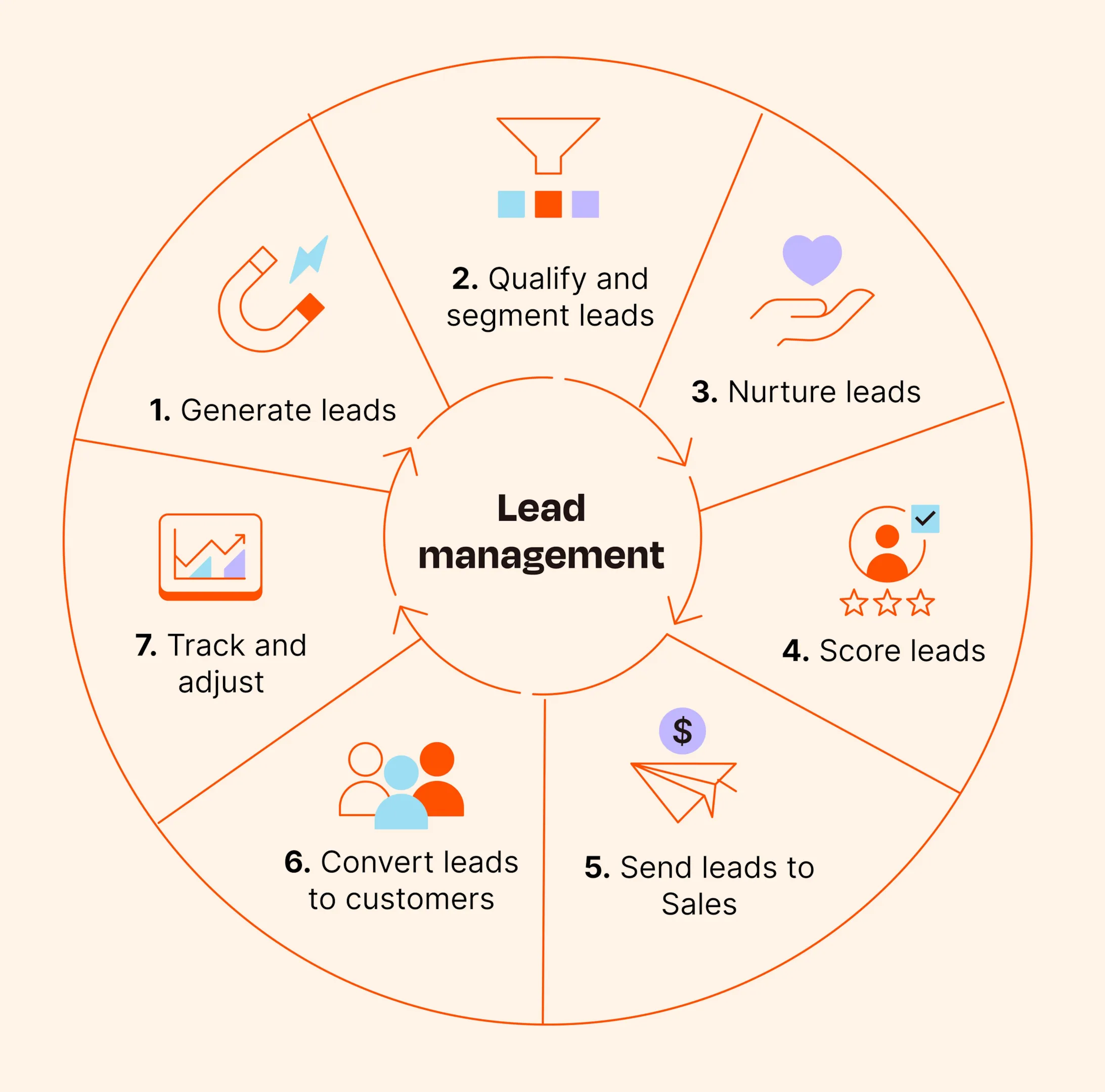
A lead management model is a systematic approach used by digital marketing agencies and sales teams to track and manage potential clients (leads) from the initial point of contact through the entire sales process.
This model typically involves several key steps:
- Identifying and capturing leads (often through digital marketing leads or content marketing)
- Qualifying these leads to determine their potential value
- Nurturing them with targeted marketing efforts (such as email marketing or social media marketing)
- Handing them off to the sales team for conversion into customers.
Throughout this process, lead scoring can be used to prioritize leads based on their likelihood to convert.
The ultimate goal of the lead management model is to streamline the sales process, increase the conversion rate of leads into customers, and ultimately drive business growth for digital agencies.
How to Implement Lead Scoring for Better Quality Leads
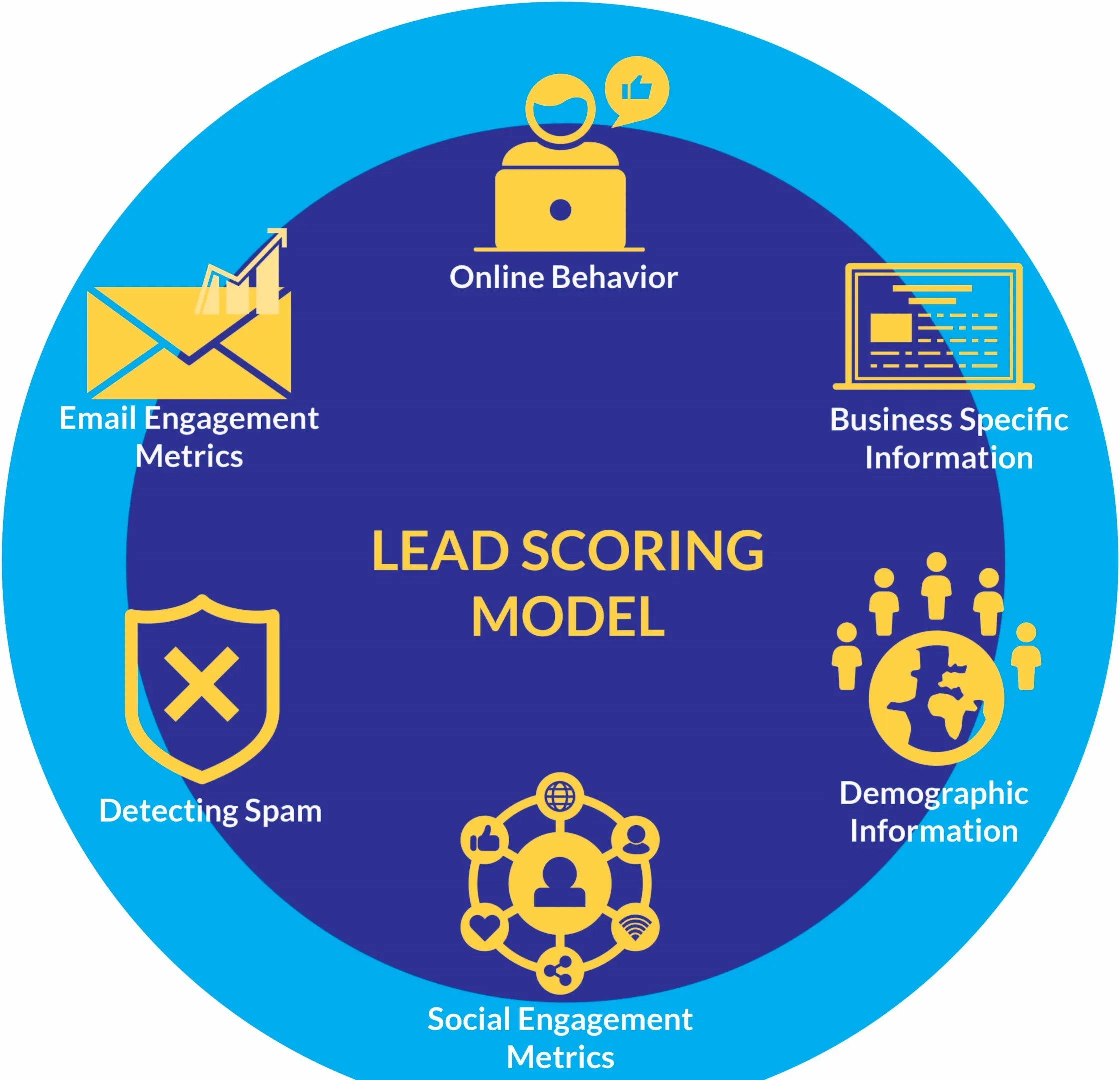
Concept of Lead Scoring: Lead scoring is a system used by sales and marketing teams to rank prospects based on their potential value to the organization. It's a way to identify which leads are most likely to convert.

Step-by-Step Implementation:
1. Identify Key Indicators
Start by determining what makes a lead valuable. This could include factors like engagement with your content marketing, responses to email marketing campaigns, or interaction with social media marketing efforts.
For example, a lead regularly opening your emails or engaging with your social media posts might score higher.
2. Assign Values to Behaviors
Each action a potential customer takes should have a corresponding score.
For instance, downloading a lead magnet might score 10 points, while attending a webinar might score 20. This system helps in quantifying the engagement level of each lead.
3. Set Up Scoring Thresholds
Define what score range categorizes a lead as 'hot,' 'warm,' or 'cold.' This segmentation allows sales teams to prioritize their efforts effectively.
For instance, leads scoring above 50 points might be considered 'hot' and ready for direct sales engagement.
4. Integrate CRM and Marketing Automation
Use CRM systems like Salesforce in conjunction with marketing automation tools to track and score leads automatically.
This integration ensures that the lead's interactions across various digital marketing channels are captured and scored in real-time.
5. Regular Review and Adjustment
Lead scoring is not a set-and-forget process. It requires regular reviews and adjustments based on feedback from the sales team and the evolving digital marketing landscape.
This might include changing the score values or indicators based on new trends in digital marketing leads.
6. Leverage Analytics
Use analytics tools to monitor the success rate of leads based on their scores.
This data can reveal insights into which scoring criteria are most indicative of a lead's readiness to purchase, allowing for further refinement of the scoring system.
7. Incorporate Feedback Loops
Establish feedback mechanisms where sales and marketing teams can communicate about the quality and accuracy of the lead scoring system.
This ongoing dialogue is crucial for maintaining a system that accurately reflects the quality of leads, which will help to convert leads eventually
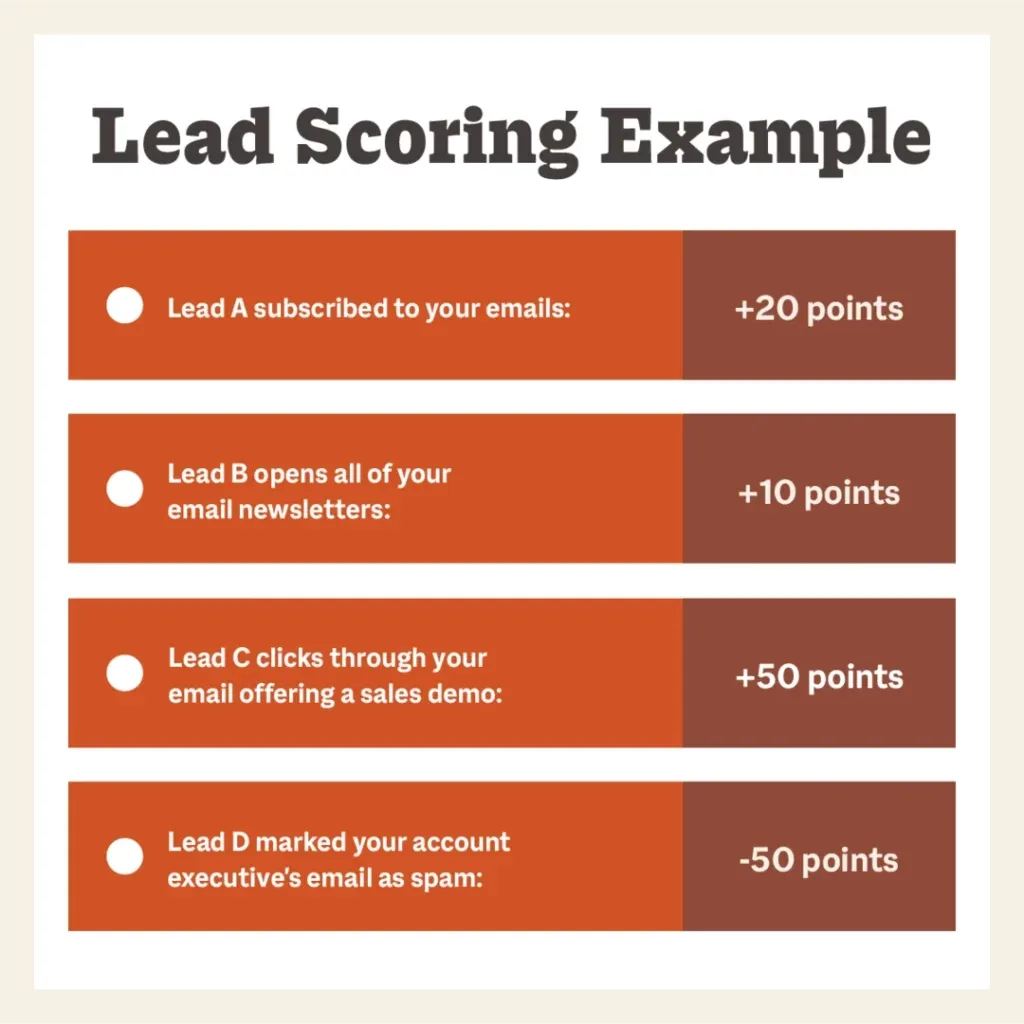
How to Manage and Nurture Generated Leads
Key to Lead Management
After generating leads, Use CRM systems like Salesforce to categorize leads based on their scoring and sales stage.
Nurturing Leads
Employ drip email marketing campaigns to provide continuous value through relevant content. This keeps your agency in the lead's consideration.
Consistent Follow-ups
Regularly follow up with leads using personalized communication methods. This builds stronger relationships, increasing the likelihood of conversion.
Data Analysis
Regularly review CRM and marketing data to understand the effectiveness of different strategies, allowing for ongoing refinement of your lead generation approach.
Feedback Integration
Use feedback from the sales team to continually improve the lead generation and scoring process, making it more targeted and effective.
Innovative Practices to Generate Leads for Digital Agencies
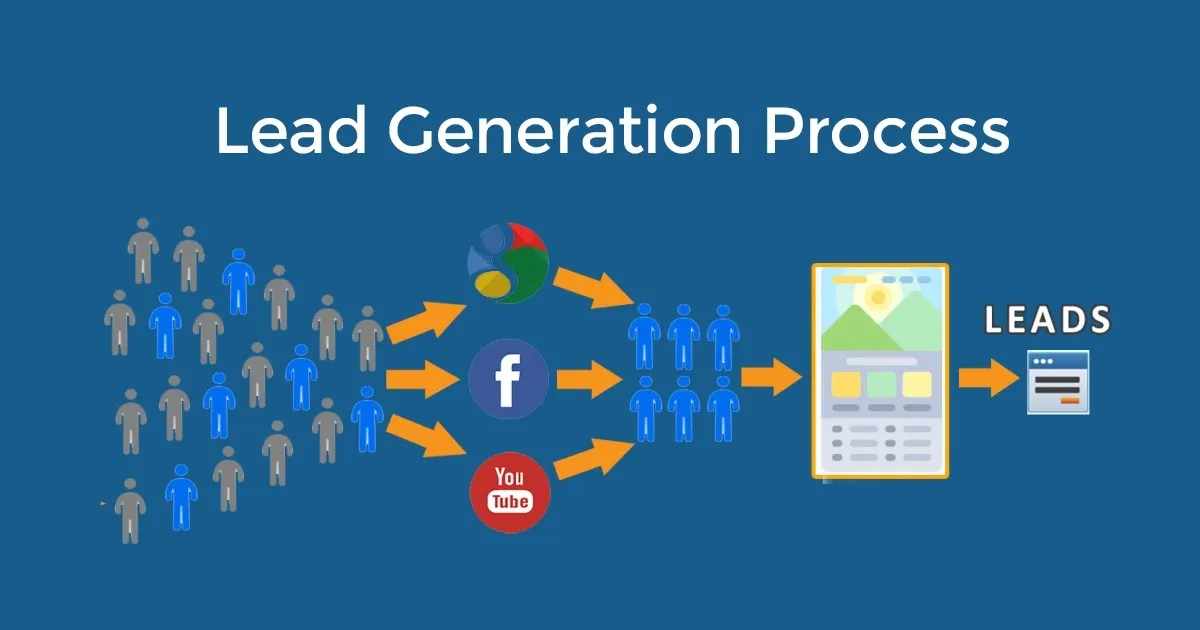
Digital agencies seeking to stand out in the competitive market should adopt these innovative lead generation strategies:
AI and Machine Learning for Lead Scoring
Utilize AI and machine learning to predict which leads are most likely to convert. This technology analyzes data patterns, enabling targeted marketing and efficient use of your sales team's efforts.
Interactive Content Engagement
Shift to interactive content like quizzes and polls. This not only engages potential clients but also collects valuable data for personalized marketing.
Voice Search Optimization
Optimize for voice search to tap into the growing user base of voice-assisted devices. Include conversational keywords in your SEO strategy to appear in voice search results.
Interactive Video Marketing
Innovate in video marketing by adding interactive elements like clickable CTAs to your videos. This can boost engagement and lead conversion.
Chatbots for Lead Qualification
Deploy chatbots on your website and social platforms. They can engage visitors, answer questions, and gather contact details around the clock, ensuring you capture every potential lead.
Account-Based Marketing (ABM)
Implement ABM by tailoring marketing efforts to specific high-value accounts. This personalized approach targets key decision-makers, increasing conversion rates.
Influencer Collaborations
Collaborate with influencers in the digital marketing field. They can expand your reach and lend credibility to your agency, attracting quality leads.
Podcasts for Thought Leadership
Create or sponsor digital marketing podcasts. This positions your agency as an industry thought leader, indirectly promoting your services while discussing trends and insights.
Future of Lead Generation: Trends and Predictions

Key Takeaways for a Digital Agency
Adoption of AI and Advanced Analytics
One significant trend is the increasing use of AI and advanced analytics in lead generation. By leveraging predictive analytics and AI algorithms, digital agencies can more accurately target potential clients, enhancing the efficiency of their marketing efforts. This includes using data-driven insights to understand the digital marketing leads' behavior and preferences.
Focus on Personalization
Personalization in marketing campaigns is becoming more critical. Tailoring content and offers to the specific needs and interests of your target audience can significantly improve engagement rates. Utilizing CRM systems to gather and analyze customer data will be essential in crafting these personalized experiences.
Rise of Voice Search and SEO
As voice search becomes more prevalent, optimizing for voice search queries is a must. Agencies need to include conversational keywords in their SEO strategies to appear in these search results, catering to a growing segment of users who rely on voice-activated devices.
Integration of Video Marketing
The use of video content in lead generation campaigns is expected to grow. Creating interactive and engaging video content that can capture the attention of potential clients is key. This includes using video for client testimonials, product demonstrations, and educational content.
Evolving Trends in Lead Generation Techniques
Chatbots for Lead Qualification
Implementing chatbots on websites and social media platforms for initial lead interaction and qualification is becoming more common. These chatbots can engage visitors, answer preliminary questions, and collect basic information, streamlining the lead generation process.
Account-Based Marketing (ABM)
ABM focuses on targeting high-value accounts rather than individual leads. This approach involves creating highly customized marketing campaigns aimed at specific companies or decision-makers, resulting in more effective lead generation for digital agencies.
Leveraging LinkedIn for B2B Lead Generation
LinkedIn is becoming increasingly important for B2B lead generation. Utilizing LinkedIn ads and actively participating in industry-related groups can help in generating qualified leads, especially for digital marketing agencies targeting business clients.
Innovative Use of Social Media Platforms
Beyond traditional posts and ads, utilizing innovative formats like live streams, interactive stories, and social media polls can engage the audience more effectively, resulting in higher lead generation.





.png)

.png)
